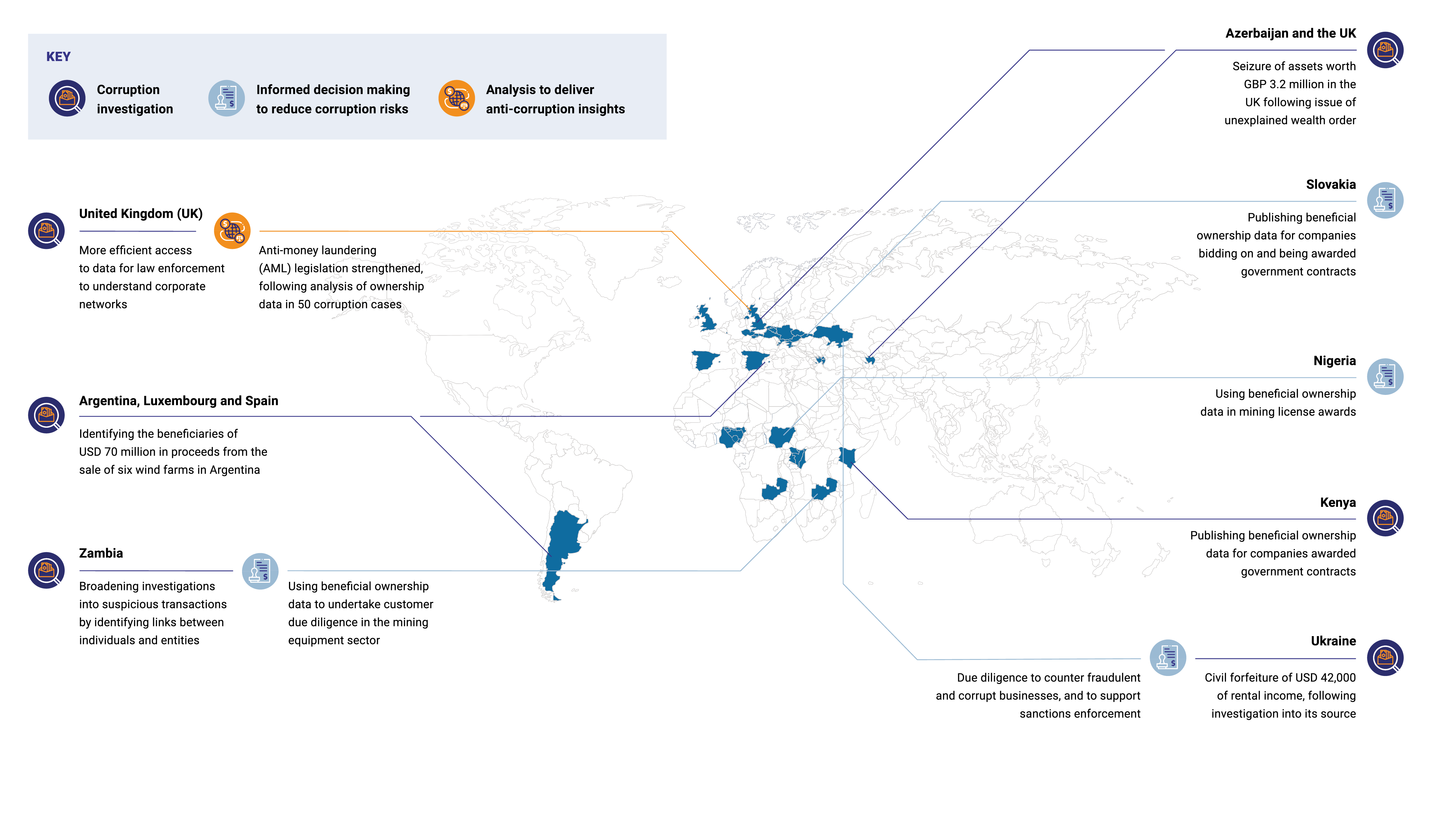Who benefits? How company ownership data is used to detect and prevent corruption
Global anti-corruption efforts using beneficial ownership data
The case studies and examples in this report are drawn from a range of countries and demonstrate the potential for beneficial ownership data use to identify corrupt actors and hold them to account. They also show how ownership data can inform decisions to reduce corruption risks, and how the analysis of data can be used to formulate more effective anti-corruption policies and legislation.

United Kingdom (UK)
- More efficient access to data for law enforcement to understand corporate networks
- Anti-money laundering (AML) legislation strengthened, following analysis of ownership data in 50 corruption cases
Argentina, Luxembourg, and Spain
- Identifying the beneficiaries of USD 70 million in proceeds from the sale of six wind farms in Argentina
Zambia
- Broadening investigations into suspicious transactions by identifying links between individuals and entities
- Using beneficial ownership data to undertake customer due diligence in the mining equipment sector
Azerbaijan and the UK
- Seizure of assets worth GBP 3.2 million in the UK following issue of unexplained wealth order
Slovakia
- Publishing beneficial ownership data for companies bidding on and being awarded government contracts
Nigeria
- Using beneficial ownership data in mining license awards
Kenya
- Publishing beneficial ownership data for companies awarded government contracts
Ukraine
- Due diligence to counter fraudulent and corrupt businesses, and to support sanctions enforcement
- Civil forfeiture of USD 42,000 of rental income, following investigation into its source
Next page: Increasing beneficial ownership data use in addressing corruption